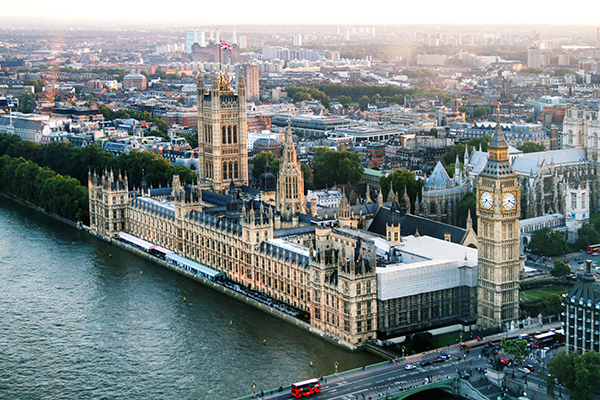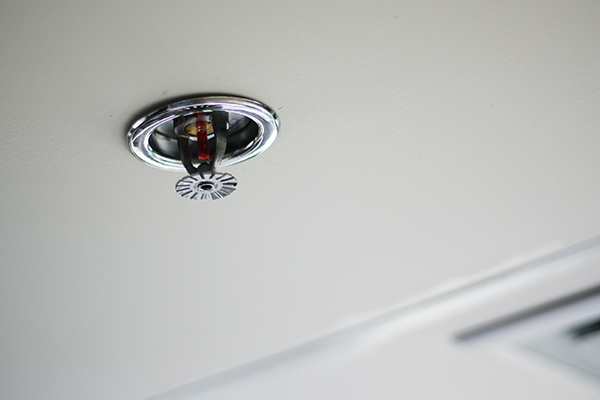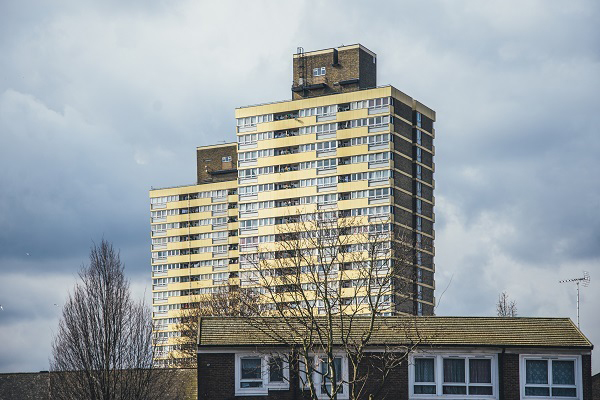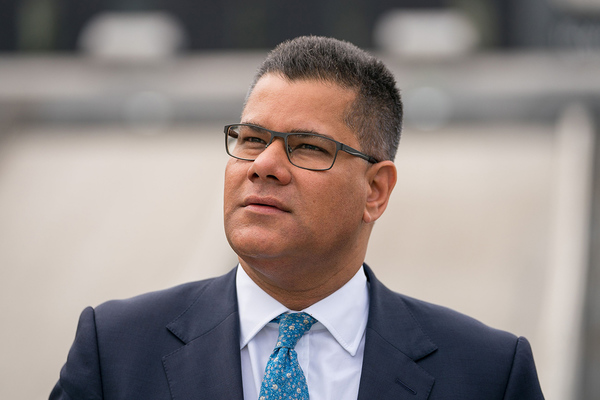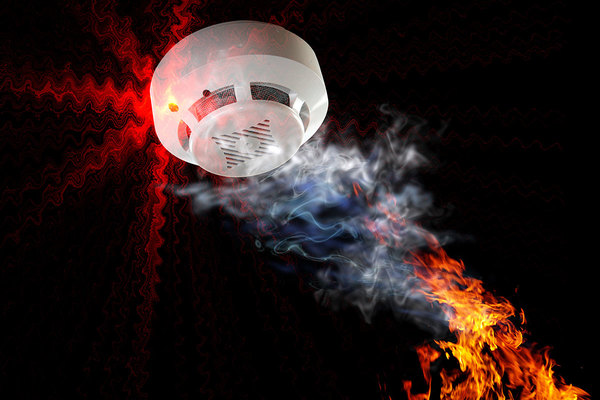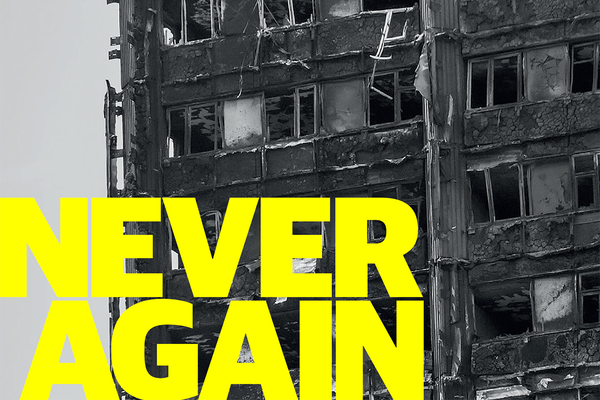You are viewing 1 of your 1 free articles
Parliament to receive £118m fire safety upgrade as funding for tower blocks refused
The government will spend more than £100m on fire safety upgrades to parliament, including sprinklers, despite turning down requests from councils for cash to fund fire safety works on tower blocks.
Inside Housing can reveal the government has budgeted £118m to pay for an eight-year programme of fire safety improvements across the parliamentary estate, which will include the installation of “high-pressure water mist systems” to some areas.
Earlier this month, housing minister Alok Sharma wrote to Nottingham City Council refusing to help pay the £6m bill to install sprinklers in its 13 tower blocks, describing the work as “additional not essential”.
This is despite Dany Cotton, commissioner of the London Fire Brigade, saying all council tower blocks should be fitted with the devices, adding “this can’t be optional; it can’t be a ‘nice to have’. This is something that must happen”.
Other councils which hope to install sprinklers in the aftermath of the Grenfell Tower tragedy in June have received no commitment from government on funding.
Jane Urquhart, portfolio holder for housing at Nottingham City Council, said: “The government has found the resources necessary to install sprinklers in the Houses of Parliament as a sensible fire safety precaution for the safety of those who work and visit there.
“It does seem strange that, at the same time, the housing minister deems sprinklers in social housing tower blocks not to be essential to ensure the safety of our tenants.”
Croydon Council has also requested £10m to retrofit sprinklers in 26 towers, but has so far received no response.
Alison Butler, cabinet member for housing at the council, said: “Parliament is a historic building and it is a place where people work, but protecting people’s lives and their homes should be a higher priority.
“Grenfell changed everything and we have got to look at fire safety in a different way now – there can’t be any bigger priority than making people safe.”
She said the council would still seek to pay for the sprinklers without government support, but warned this would put pressure on other areas of investment.
The full fire safety improvements to parliament will include replacement of automatic fire detection and voice alarm systems, emergency lighting, dampers, fire signage, compartmentation, fire doors and high-pressure water mist systems, all paid for by the taxpayer.
A spokesperson for the refurbishment programme confirmed the cost of the works to Inside Housing this week.
Inside Housing’s Never Again campaign calls on the government to fund the retrofitting of sprinklers in tower blocks as a matter of urgency.
A spokesperson for the Department for Communities and Local Government (DCLG) said: “Building owners are responsible for funding measures designed to make a building safe. We’ve been clear that where a local authority has concerns about funding essential fire safety measures, they should contact DCLG as soon as possible to discuss their position.”
Never Again campaign
In the days following the Grenfell Tower fire on 14 June 2017, Inside Housing launched the Never Again campaign to call for immediate action to implement the learning from the Lakanal House fire, and a commitment to act – without delay – on learning from the Grenfell Tower tragedy as it becomes available.
One year on, we have extended the campaign asks in the light of information that has emerged since.
Here are our updated asks:
GOVERNMENT
- Act on the recommendations from Dame Judith Hackitt’s review of building regulations to tower blocks of 18m and higher. Commit to producing a timetable for implementation by autumn 2018, setting out how recommendations that don’t require legislative change can be taken forward without delay
- Follow through on commitments to fully ban combustible materials on high-rise buildings
- Unequivocally ban desktop studies
- Review recommendations and advice given to ministers after the Lakanal House fire and implement necessary changes
- Publish details of all tower blocks with dangerous cladding, insulation and/or external panels and commit to a timeline for remedial works. Provide necessary guidance to landlords to ensure that removal work can begin on all affected private and social residential blocks by the end of 2018. Complete quarterly follow-up checks to ensure that remedial work is completed to the required standard. Checks should not cease until all work is completed.
- Stand by the prime minister’s commitment to fully fund the removal of dangerous cladding
- Fund the retrofitting of sprinkler systems in all tower blocks across the UK (except where there are specific structural reasons not to do so)
- Explore options for requiring remedial works on affected private sector residential tower blocks
LOCAL GOVERNMENT
- Take immediate action to identify privately owned residential tower blocks so that cladding and external panels can be checked
LANDLORDS
- Publish details of the combinations of insulations and cladding materials for all high rise blocks
- Commit to ensuring that removal work begins on all blocks with dangerous materials by the end of 2018 upon receipt of guidance from government
- Publish current fire risk assessments for all high rise blocks (the Information Commissioner has required councils to publish and recommended that housing associations should do the same). Work with peers to share learning from assessments and improve and clarify the risk assessment model.
- Commit to renewing assessments annually and after major repair or cladding work is carried out. Ensure assessments consider the external features of blocks. Always use an appropriate, qualified expert to conduct assessments.
- Review and update evacuation policies and ‘stay put’ advice in the light of risk assessments, and communicate clearly to residents
- Adopt Dame Judith Hackitt’s recommended approach for listening to and addressing tenants’ concerns, with immediate effect
CURRENT SIGNATORIES:
- Chartered Institute of Housing
- G15
- National Federation of ALMOs
- National Housing Federation
- Placeshapers
